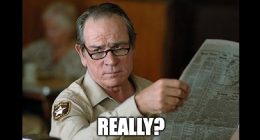9News understands police from seven stations are referring a range of non-critical jobs back to the relevant authorities, with staff at other stations expected to follow suit.
Officers at Auburn, Bankstown, Burwood, Campbelltown, Camden, Cumberland and Fairfield stations are declining to attend religious operations such as pro-Palestinian rallies, truancy checks for schools, parking disputes and animal complaints.

Police have also refused to conduct stationary random breath tests, bail compliance checks except for high-risk domestic violence offenders, prisoner transfers and security services for transporting mental health patients between hospitals.
“Staffing levels have got to a point in the south-west where our police association branches out there have said ‘once upon a time, we were the 24/7 problem solver, we’re not anymore’,” NSW Police Association president Kevin Morton said.
“There are a number of jobs that are coming through that simply don’t require a police response and our branches have said we’re not attending.

“They are now triaging those jobs and filtering them back to the agencies that should look after them.
“They’re feeling tired, they’re feeling overworked and this excess workload that they’re doing is really dragging them down.
“When you turn up to the start of your shift with 40 jobs outstanding and you look at those jobs and see that generally half of them shouldn’t be a police response, that really affects our members mentally.”
One non-critical job included a call-out to a shopping centre to capture a blue tongue lizard.
It is understood stations in Campsie, Liverpool, Cessnock and Maitland will join their colleagues in declining non-critical jobs.
The state-wide staffing shortage is taking such a toll that an officer from Penrith was forced to work on a day off to cover last weekend’s protest in the Sydney CBD.
“If there is a job that doesn’t require a police response, we triage that job and apply a risk assessment to it,” Morton said.
“The one thing that we want to ensure is that no community member’s safety is ever put at risk when we do this and that is really important.
“But when you’re dealing with animal complaints or parking complaints, even low-level mental health issues, they are not police responses and police shouldn’t be attending.”
NSW Police Commissioner Karen Webb told 9News she is working to reduce the demand on the frontline, ensure jobs are appropriately triaged, and assess whether other agencies should step up.
Webb also said there is no risk to the public with the unrest.






